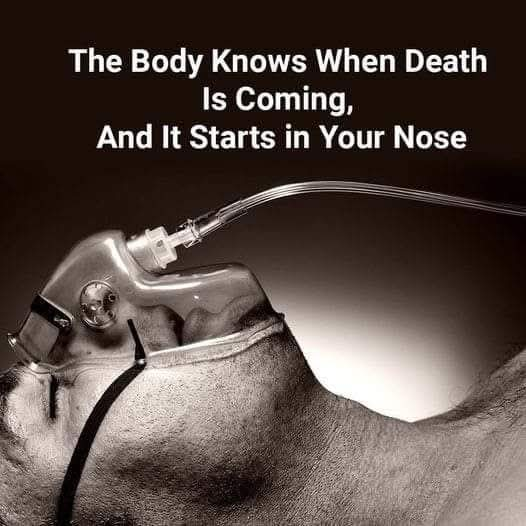The Nose Knows: The Connection Between Smell and Death

It may sound eerie, but your nose might be more connected to death than you think. Recent studies and age-old observations suggest that changes in your sense of smell—or even certain odors around you—could be warning signs of declining health, brain changes, or even approaching death.
Loss of Smell and Early Warnings
Researchers have found that losing your sense of smell (a condition called anosmia) could be a red flag for serious health issues. In a groundbreaking study, adults over 65 who couldn’t identify common odors like smoke, peppermint, or rose were significantly more likely to die within five years. Why? Because the sense of smell is closely tied to brain function and the nervous system. A sudden loss of smell may signal neurodegenerative diseases like Parkinson’s or Alzheimer’s, often years before other symptoms show up.
Smell and the Brain’s Health
The olfactory nerve, which controls your sense of smell, is one of the first brain structures affected in neurological disorders. This means that even subtle changes in how you detect or recognize smells can hint at cognitive decline or brain damage. Some researchers now believe smell tests could one day be used as early diagnostic tools.
The “Scent of Death” Around Others
There’s also an old belief that the body emits a certain smell shortly before death. Nurses and hospice workers often report sensing a distinct, sweetish odor from patients nearing the end of life. While science is still exploring the specifics, it may be related to chemical changes in the body during organ shutdown.
Can You Train or Protect Your Sense of Smell?
Yes. Avoiding smoking, protecting your head from injury, eating a zinc-rich diet, and even regular “smell training” with essential oils may help preserve your olfactory function. Staying mentally active and protecting overall brain health also supports the sense of smell.
FAQs
Can losing my sense of smell really mean I’m dying?
Not necessarily—but it can be a warning sign of underlying health issues. It’s worth discussing with a doctor, especially if the change is sudden.
What should I do if I notice my sense of smell fading?
Schedule a check-up. It could be linked to infections, sinus issues, or more serious neurological conditions.
Can certain smells really predict death?
There are anecdotal reports, especially in hospice care, but science is still studying the biochemical basis of this phenomenon.
Is smell connected to memory and emotion too?
Yes! Smell is deeply tied to the limbic system, which controls emotions and memories. That’s why certain scents can trigger strong feelings or flashbacks.






